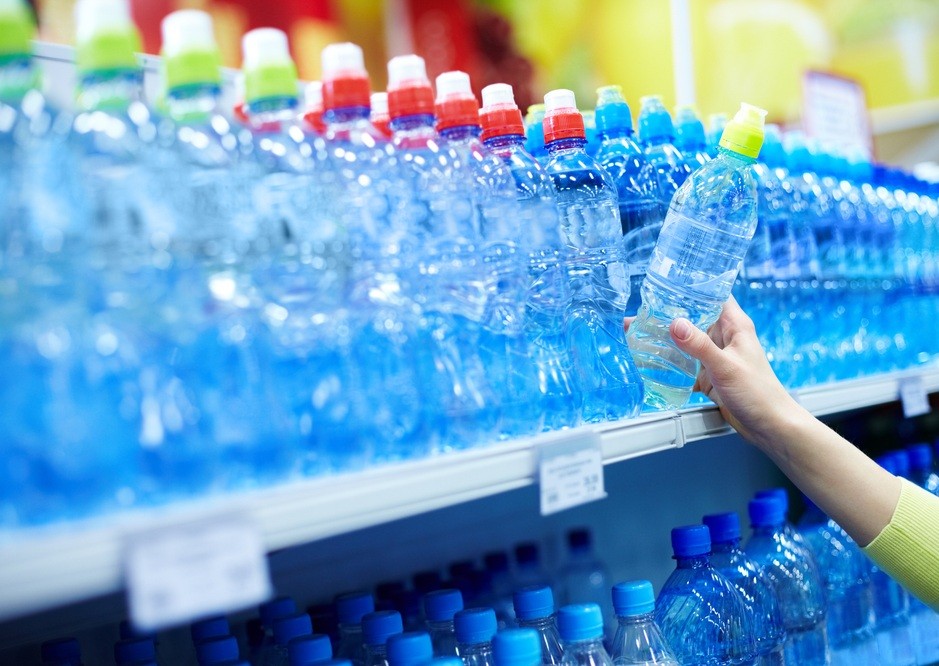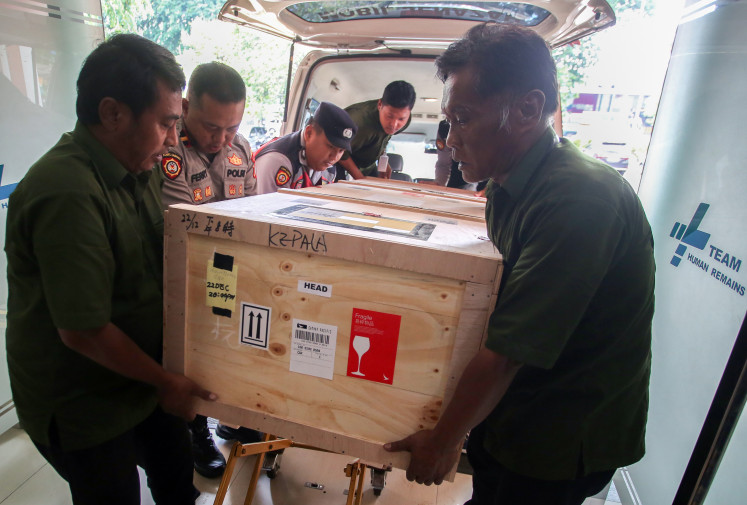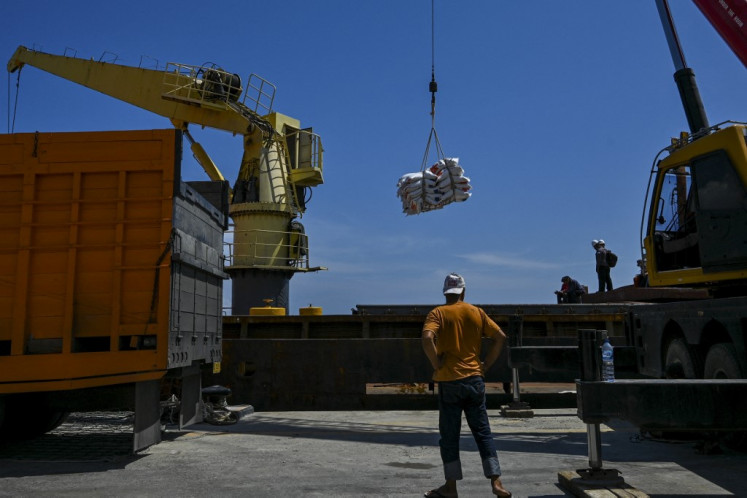Popular Reads
Top Results
Can't find what you're looking for?
View all search resultsPopular Reads
Top Results
Can't find what you're looking for?
View all search resultsEDITORIAL: Plastic, not so fantastic
Change text size
Gift Premium Articles
to Anyone
W
e cannot be indifferent when it comes to reducing plastic waste. Indonesia, globally accused of being the second-worst marine polluter after China, has made several attempts to reduce this waste, but results have been negligible.
To understand the problem, we have to examine why we love plastics so much. The use of plastic bags is inseparable from human beings’ desire to consume. And shopping without plastic bags is a hassle. Cardboard boxes or paper bags are substitutes but they are not as handy. And because plastic bags are so cheap, it is easier for us to dispose of them and get new ones every time we shop.
People will not be prepared to leave their plastic comfort zone without a considerable reward, or punishment. Bringing our own bags from home seems to be easy, but as long as plastic bags are still freely distributed by retailers, only a few people are disciplined enough to bring their own bags.
Banjarmasin has tried to become a pioneer in this front. The South Kalimantan capital issued a municipal regulation in 2016, prohibiting retailers from providing plastic bags for consumers. Consumers must bring their own bags or the retailers provide cardboard boxes.
It was not a popular policy among shoppers, and retailers complained that some consumers went outside Banjarmasin to shop.
Banjarmasin Mayor Ibnu Sina has been unrelenting. Two years after he passed the regulation, he is still upbeat that the regulation is good for Banjarmasin’s environment. He claimed this year the city managed to reduce the amount of garbage it disposes of at the city dump, although he was not specific.
Banjarmasin cannot do it alone though. Indonesia needs to get out of the hall of shame and there is no other way than by taking cast-iron measures against plastic. The government has to be firm even though retailers, plastic producers and consumers will all complain.
A half-hearted policy on plastic waste will come to nothing. The failed past attempts speak for themselves.
In 2016, the Environment and Forestry Ministry issued a regulation imposing charges for plastic bags at retailers. The policy was implemented in cooperation with the Association of Indonesian Retailers (Aprindo).
Ahead of Feb. 21, 2016, National Waste Day, the ministry announced 22 cities had joined the trial. But the charge was set only at a negligible amount of Rp 200 per bag, or a little above 1 US cent.
On the announcement day, the number of cities joining the trial decreased. In October that year, Aprindo had stopped the policy altogether.
Banjarmasin is the only surviving city in the war against plastic waste. While Banjarmasin’s efforts have to be appreciated, one city alone cannot significantly reduce the country’s mountain of plastic waste. Even the nation’s capital, then under Basuki “Ahok” Tjahaja Purnama, failed.
The environment ministry cannot do it alone either. Reducing plastic waste needs a concerted effort led by the President, supported by the House of Representatives and the private sector. There is no room for flexibility when it comes to plastic.










